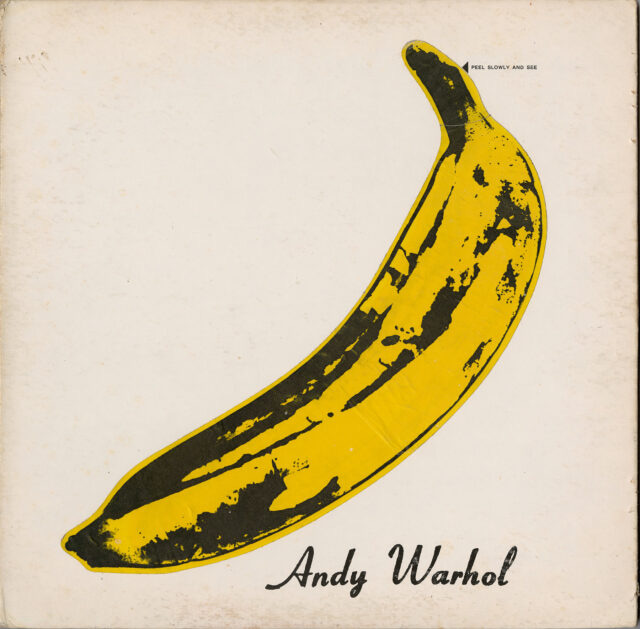No intro. No time. Music now!
Freak Out! - The Mothers of Invention
It makes sense to me that when other mainstream jazz labels like Blue Note and Impluse! were beginning to embrace and produce avant-garde jazz towards the back half of the 1960s, Verve decided to pursue avant-garde rock (or as it’s more commonly referred to, art rock). While the other labels were putting out the newest from Archie Shepp, Albert Ayler, Ornette Coleman, Don Cherry, and Yusef Lateef, Verve was giving groups like The Velvet Underground and The Mothers of Invention their first commercial breaks. Much like free jazz, this new kind of rock music was a huge financial risk and one that was only made worse by the fact that Freak Out! was a double album. To add some context, Bob Dylan’s Blonde On Blonde broke the ground for double albums in the rock genre and that was released only a week before this record came out in June of 1966. Bob Dylan was an established, highly successful, immensely popular recording artist on Columbia at the time of Blonde On Blonde’s release; Freak Out! was a debut record.
I like to think of Freak Out! as a first-day lecture at the University of Frank Zappa, the group’s enigmatic and eccentric mustachioed leader. The album’s fusion of influences ranging from blues to R&B to pop to whatever else your ears can pick out makes for an intriguing listen from start to finish. One gets a sense of the true individuality that Zappa exudes and a glimpse into what his career would become. I don’t think you could definitively categorize this album and I believe the only reason it’s often referred to as psychedelic is due to its time of release. You’ll realize when you listen that it’s not like anything else of the time. After all, Zappa was never one to follow convention.
West Side Story - Oscar Peterson Trio
I can’t talk about Verve without talking about jazz and I can’t talk about jazz on Verve without talking about the great pianist, Oscar Peterson. In a way, Peterson was to Verve what Miles was to Columbia or what Jimmy Smith was to Blue Note. He was one of the label’s major stars throughout the 50s and into the 60s. Peterson made quite a number of records for Verve, many of which have now been cemented as iconic works within the jazz idiom. His fabulous recorded collaborations with Louis Armstrong, Lester Young, Sonny Stitt, Milt Jackson, Stan Getz, and others are undoubtedly must-listens for veteran jazz fans and newcomers alike.
My favorite Oscar Peterson records are the ones that just feature his trio with Ray Brown on bass and Ed Thigpen on drums. Smooth, swinging, driving, and effortlessly hip, the trio never fails to get my foot tapping. I would argue that anyone who isn’t immediately moved to move to the Oscar Peterson trio isn’t worth your time. I’m not an animated person in the slightest but when I hear Ed Thigpen’s ride cymbal locked with Ray Brown’s bass and Peterson’s piano floating on top, I can’t help but groove along.
I find the trio’s treatment of these Leonard Bernstein-penned tunes from the Broadway show-turned-movie to be just exquisite. One listen and I’m sure you’ll agree. Beauty and swing abound.
The Velvet Underground and Nico - The Velvet Underground and Nico

I mean… come on.
For my money, Verve is the best label for mood music from the mid-20th century. I didn’t mention any of the work from Billie Holiday or Ella Fitzgerald (the label’s catalyst), nor did I mention any Coleman Hawkins, Ben Webster, or Lester Young records on Verve. Why? They’re all incredible; that’s why. I only mentioned the first three records that came to mind. Go dig for yourself. I can assure you that there’s something you’ll love in the Verve catalog.




![Frank Zappa / The Mothers Of Invention – Freak Out! – CD (Album, Reissue + 2 more), 1995 [r397868] | Discogs Frank Zappa / The Mothers Of Invention – Freak Out! – CD (Album, Reissue + 2 more), 1995 [r397868] | Discogs](https://substackcdn.com/image/fetch/$s_!vBHy!,w_1456,c_limit,f_auto,q_auto:good,fl_progressive:steep/https%3A%2F%2Fsubstack-post-media.s3.amazonaws.com%2Fpublic%2Fimages%2Fb31239ed-d213-41a6-b534-6d47c748beb0_586x600.jpeg)
